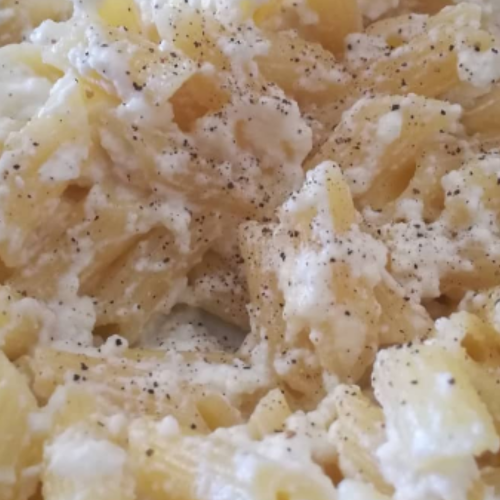Method:
Step 1: Cook the Pasta
Start by bringing a large pot of salted water to a boil. Once it's boiling, add the pasta and cook according to the package instructions, typically about 9-11 minutes for al dente pasta. Be sure to save about 1/2 cup of pasta water before draining.
Step 2: Prepare the Lemon Ricotta Sauce
While the pasta is cooking, heat 2 tablespoons of olive oil in a large skillet over medium heat. Add the minced garlic and sauté for about 1 minute, or until fragrant. Be careful not to burn it. Once the garlic is aromatic, add the ricotta cheese to the pan. Stir to combine, letting the ricotta warm through.
Step 3: Add Lemon
Zest the lemon directly into the pan, and then juice the lemon over the ricotta. Stir to combine, allowing the acidity from the lemon to balance the creaminess of the ricotta. Season with salt and black pepper to taste. The sauce should be smooth and slightly thick. Add a splash of reserved pasta water to adjust the consistency if necessary.
Step 4: Combine Pasta and Sauce
Once the pasta is cooked, use tongs or a slotted spoon to transfer it directly from the pot into the skillet with the ricotta sauce. Toss the pasta in the sauce, ensuring every strand is well-coated. If the sauce feels too thick, add a little more pasta water until it reaches your desired consistency.
Step 5: Finish and Serve
Once the pasta is coated, remove from heat. Plate the pasta, and if you like, garnish with fresh basil or parsley and a sprinkle of grated Parmesan cheese. Serve immediately and enjoy.
Variations:
Vegan Version: Use a dairy-free ricotta alternative (such as cashew or almond-based ricotta) and substitute Parmesan with a vegan version or nutritional yeast.
Protein Boost: Add grilled chicken, shrimp, or even crispy pancetta for extra protein.
Herb Twist: Try adding fresh thyme or oregano along with the lemon for an herby flavor.
Gluten-Free Option: Use gluten-free pasta for a gluten-free variation.
